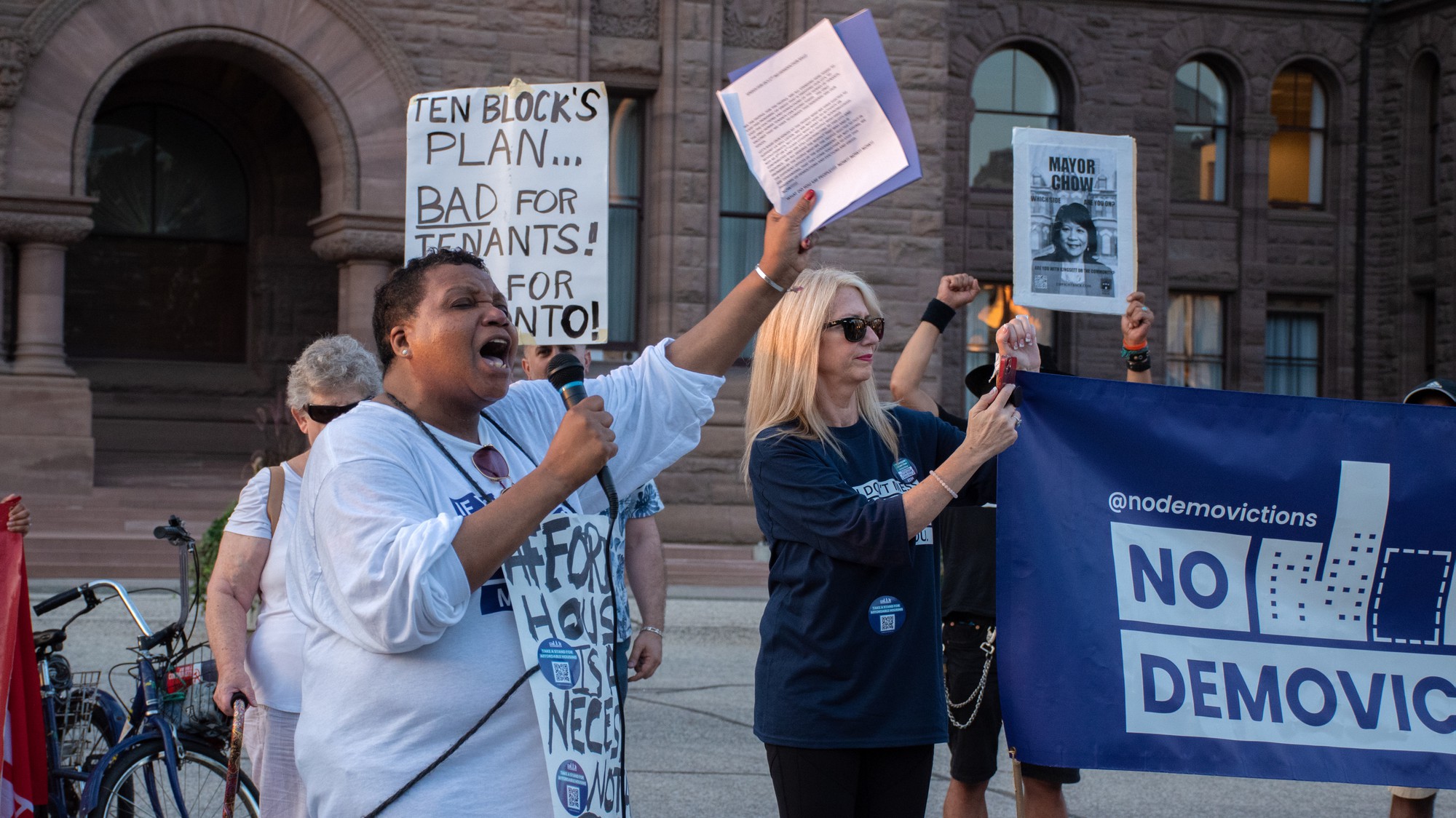A new report by ACORN (Association of Community Organizations for Reform Now) Ontario finds a large increase in no-fault evictions.
The report found a 300 per cent increase in N13s — notices that are given for major renovations or demolitions — between 2017 and 2022.
There were more than 22,000 n12/13 notices — N12 notices are given for landlords’ personal use — between 2017 and Aug. 2023.
“If a family loses their home as a result of renoviction, they will have nowhere else to go,” ACORN said. “The share of units with rents costing no more than 30 per cent of a city’s lowest household budget (bottom 20 per cent of the population) is extremely uncommon.”
The report found no units that fit the definition are available in Ottawa and Toronto.
Ricaro Tranjan, a senior researcher at the Canadian Centre for Policy Alternatives and author of The Tenant Class, said renovictions and subsequent rent increases do not correlate with any rise in maintenance cost but rather are an attempt to maximize landlords’ revenue.
“The average rent increase on a vacant unit in Ontario in 2023 was 35.6 per cent,” Tranjan said. “Landlords have a huge financial incentive to push tenants out so that they can rent to someone else for a much higher rent.”
ACORN’s report proposed a “renoviction bylaw” and a “rental replacement bylaw” to protect tenants.
A similar bylaw was passed last month by the City of Hamilton which requires landlords to obtain a renovation permit as well as provide temporary accommodations or compensation to tenants and allow them to return to the unit at the same cost as before renovations.
Tranjan highlighted the importance of strong enforcement of these bylaws with strong punishments for those who fail to comply. Hamilton’s bylaw includes a $ 500-a-day fine for failure to comply.
“Will there actually be enforcement?” he said. “Will the enforcement be carried out mostly by the government without necessarily the input of social movements and organized units? Or will it be all on the backs of still, you know, tenants being evicted?”
“Policies come, policies go, some are enforced, some are not,” said Tranjan. The only sustainable long-term defense from the perspective of tenants is organizing.”
Bruno Dobrusin, an organizer with the York-South Weston Tenant Union said organizing neighbourhoods can protect tenants from renovictions.
“That has worked for us as well, especially when it’s like a, let’s say, five-, six-unit house that is being renovated, and they tried to kick out the tenants, having the neighbours involved as well, not just the tenants, especially when the number of tenants is not that high,” Dobrusin said. “By organizing the immediate neighbours we managed to stop quite a few renovations that way.”
Dobrusin said the 70 per cent increase in N12s proves the problem goes beyond large corporate landlords.
“It’s also coming from smaller landlords who are also trying to profit as much as possible from the situation we have today,” he said.
N12 notices are for personal use and cannot be issued by large corporate landlords.
A big issue for Dobrusin is the lack of rent-safe inspectors, who enforce the city’s rental bylaws, employed by the City of Toronto.
“I think it’s less than 10 that have to go around the whole city and this is embarrassing,” he said. “We need more inspectors because that’s often what gets landlords off the hook is that there is nobody actually imposing or implementing the order from the landlord and tenant board.”
“It is especially important given that 50 per cent of Toronto is tenants,” Dobrusin said.

